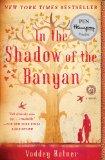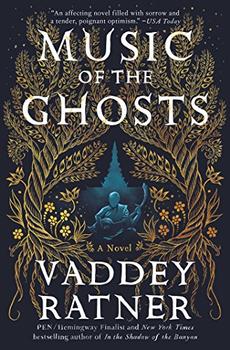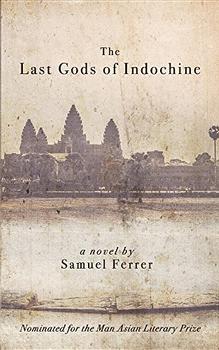Summary | Excerpt | Reading Guide | Discuss | Reviews | Beyond the book | Read-Alikes | Genres & Themes | Author Bio

A Novel
by Vaddey RatnerDisplaying the author's extraordinary gift for language, In the Shadow of the Banyan is testament to the transcendent power of narrative and a brilliantly wrought tale of human resilience.
For seven-year-old Raami, the shattering end of childhood begins with the footsteps of her father returning home in the early dawn hours bringing details of the civil war that has overwhelmed the streets of Phnom Penh, Cambodia's capital. Soon the family's world of carefully guarded royal privilege is swept up in the chaos of revolution and forced exodus.
Over the next four years, as she endures the deaths of family members, starvation, and brutal forced labor, Raami clings to the only remaining vestige of childhood - the mythical legends and poems told to her by her father. In a climate of systematic violence where memory is sickness and justification for execution, Raami fights for her improbable survival. Displaying the author's extraordinary gift for language, In the Shadow of the Banyan is testament to the transcendent power of narrative and a brilliantly wrought tale of human resilience.
Raami is the perfect vehicle for telling the horrific tale of Cambodia's genocide. Through her voice, Rattner is able to whittle down a complex multi-layered story to its basic essence. This is not an epic Killing Fields kind of a story. But in detailing the effects of the genocide on one family and by narrating it through one child's perspective, the effect is just as searing. Largely autobiographical in nature, the novel must have served as a cathartic release for Rattner who has said she painted over only some of the details in the story. Like Raami, Rattner too suffered the after-effects of polio, although unlike Raami, she was five when the Khmer Rouge took over Phnom Penh. Rattner has said she "wanted to articulate something more universal, more indicative... of the human experience - our struggle to hang on to life, our desire to live, even in the most awful circumstances." That Raami triumphs above such horrific tragedy, spirit largely intact, is proof that humanity wins in the end...continued
Full Review
 (610 words)
(610 words)
(Reviewed by Poornima Apte).
Before the Khmer Rouge (pronounced ki-mer roouze, effectively translating as Red Cambodians) wreaked havoc all over Cambodia and killed approximately one quarter of the country's seven million people, they were mostly a fringe communist guerrilla group operating in the jungles in the north of the country. Early in the 70s, then-Prince Norodom Sihanouk was deposed in a coup and, to retain support, he decided to seek the Khmer Rouge's help. This one move granted the group legitimacy and soon the Khmer Rouge, under the leadership of Pol Pot, became fairly popular in the villages and then slowly made their way into the cities.
 Pol Pot had grand plans - he decided that Cambodians didn't require education or religion. All the country ...
Pol Pot had grand plans - he decided that Cambodians didn't require education or religion. All the country ...

If you liked In the Shadow of the Banyan, try these:

by Vaddey Ratner
Published 2018
This "novel of extraordinary humanity" (Madeleine Thien, author of Do Not Say We Have Nothing) from New York Times bestselling author Vaddey Ratner reveals "the endless ways that families can be forged and broken hearts held" (Chicago Tribune) as a young woman begins an odyssey to discover the truth about her missing father.

by Samuel Ferrer
Published 2016
Nominated for the Man Asian Literary Prize ("The Booker of Asia")
"A sublime tale told by a master storyteller, steeped in the lore of old. Ferrer's conjuring of romantic Indochine is a journey that lures, stirring up ghosts in a wild phantasmagoria, reckoning with forces both entwined and eternal." - Angela Kan, Travel Host & Writer, The ...